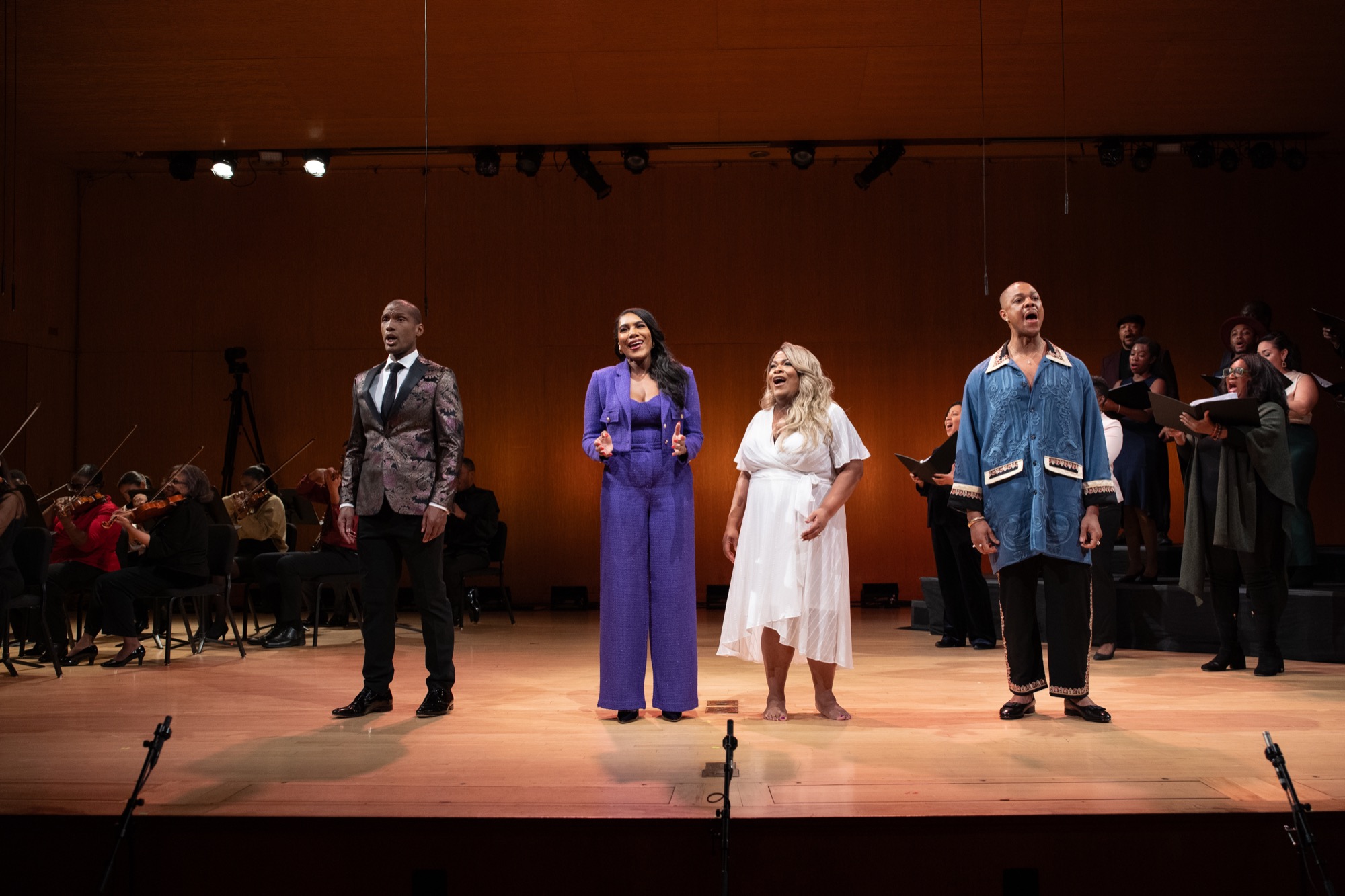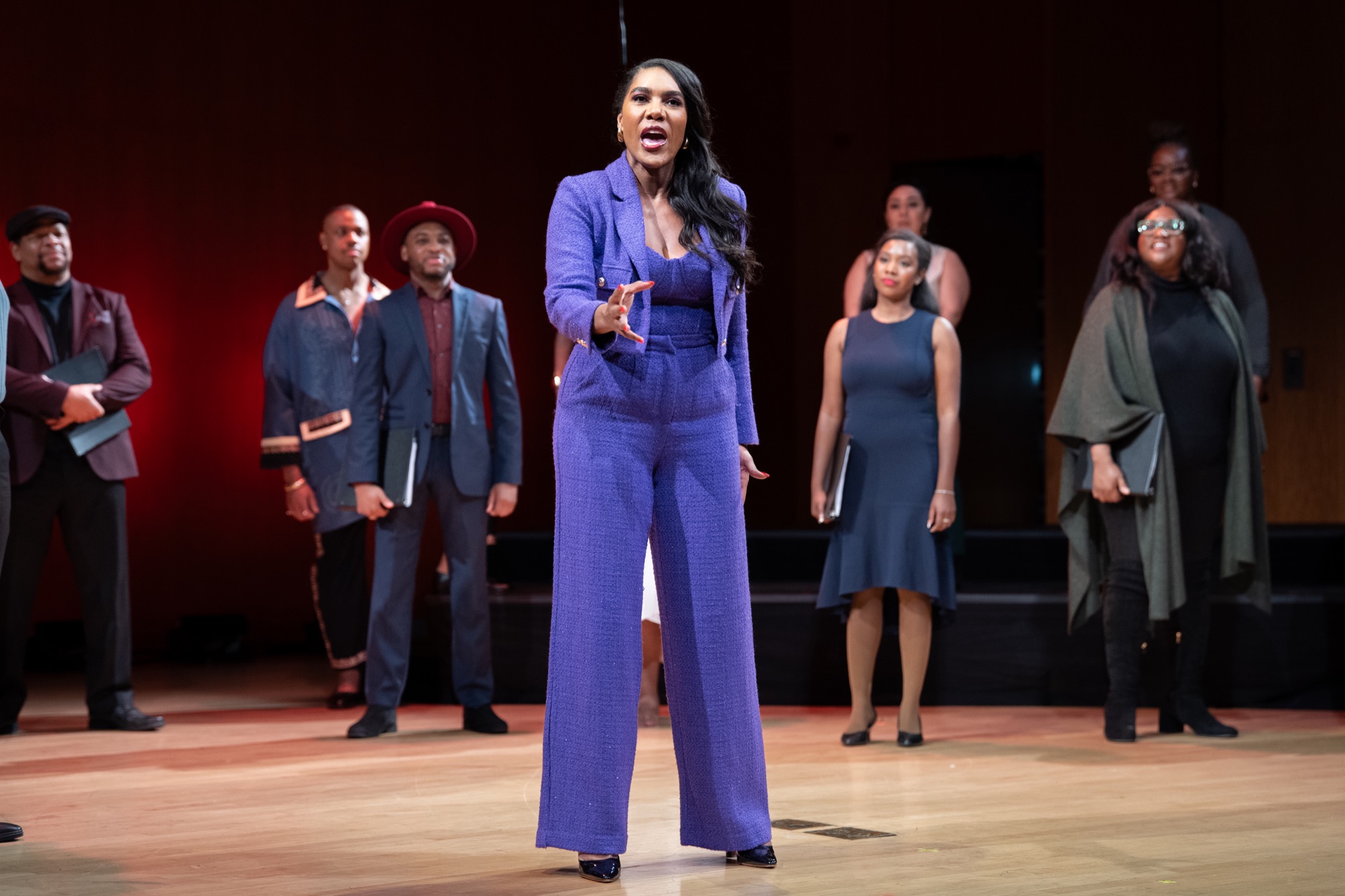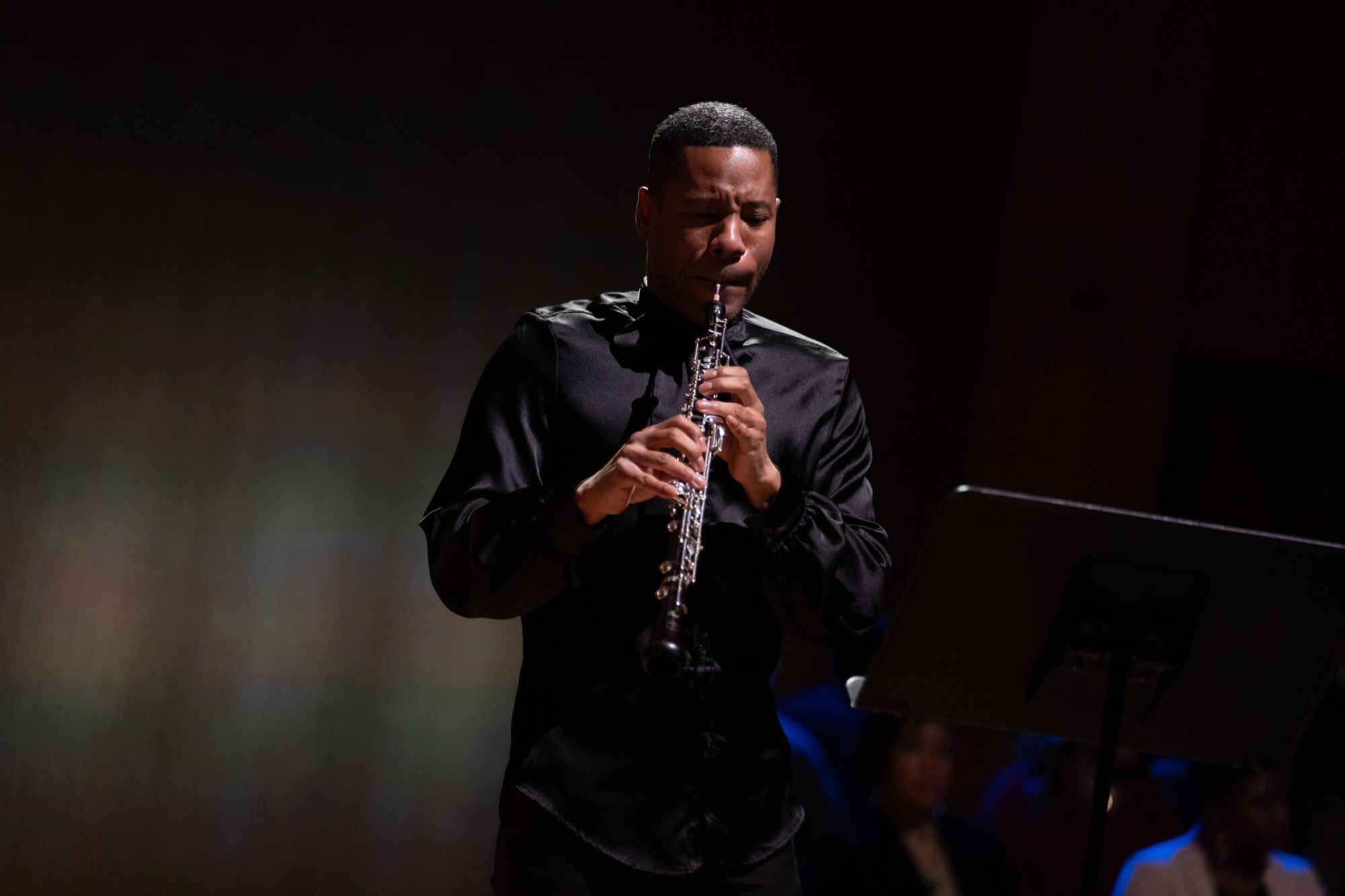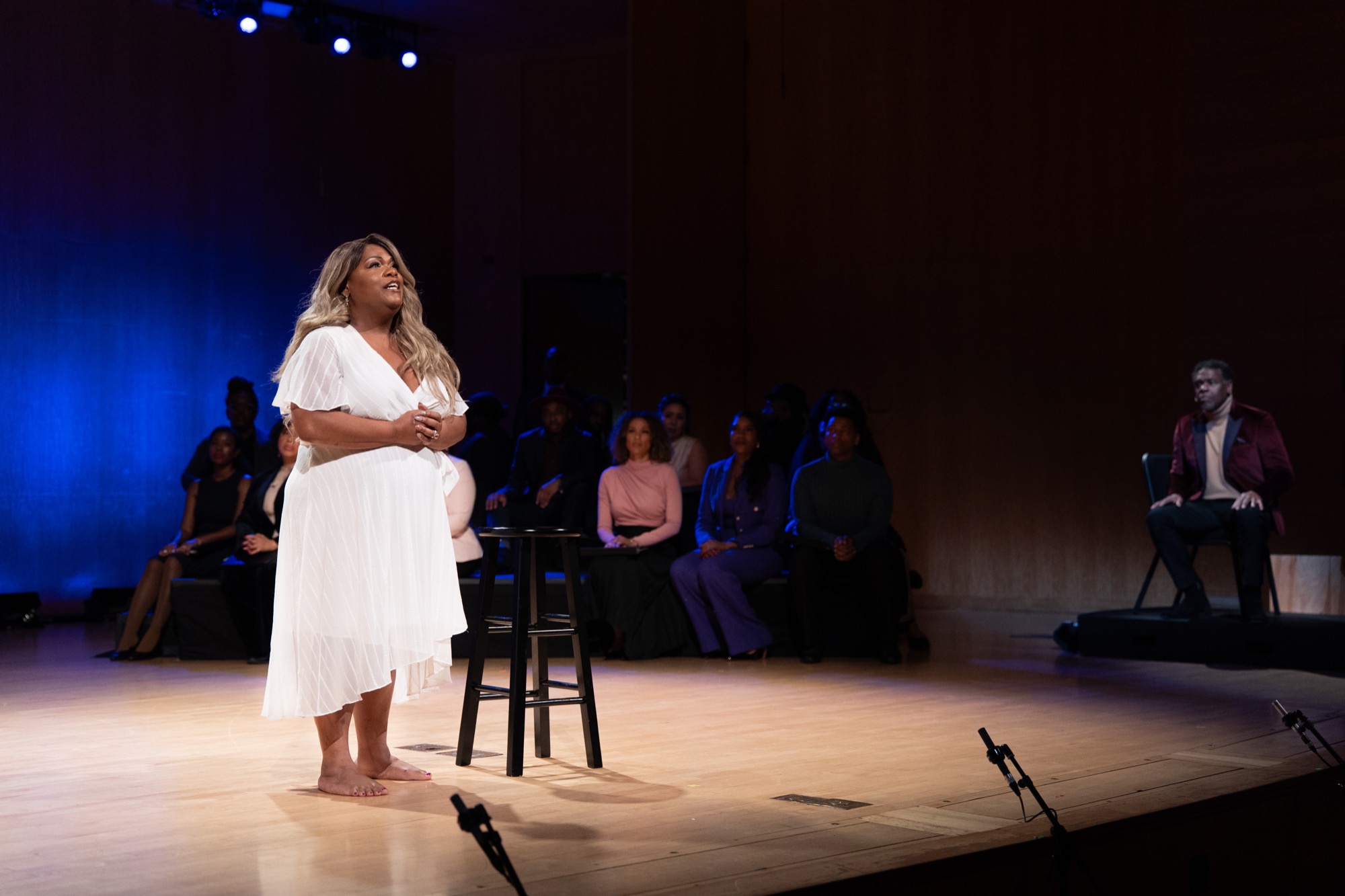Splendid performances of African American spirituals and pieces by George Frideric Handel came together brilliantly on February 16, in Handel: Made in America, one of the newly commissioned productions by The Met Museum’s MetLiveArts program.
Co-created by Terrance McKnight, the acclaimed pianist, educator, and WQXR host, Handel: Made in America fuses Mr. McKnight’s captivating perspectives on art and identity with chorus, vocal soloists, and orchestra. Mr. McKnight, seated on a stool center stage, pulled his narration off with probing panache before a full house at the Grace Rainey Rogers Auditorium last Friday evening in the production’s second of two performances. It is rare to see a production that so deftly weaves story and song together across centuries, while pondering important questions about art’s complex histories.

The performers included Malcolm J. Merriweather as conductor and harpsichordist, with keyboardist Nicole Keller alternating between the piano and the organ (both musicians excelled at managing the often-rapid change in musical styles). Four outstanding soloists joined the Voices of Harlem chorus: J’Nai Bridges (mezzo-soprano), Latonia Moore (soprano), Noah Stewart (tenor), and Davóne Tines (baritone). On the creative side, the team includes co-creators Ellen T. Harris (MIT Professor Emeritus and leading Handel scholar) and Pat Eakin Young, who also directed. The light staging and stylish costumes gave the production a subtle refinement that allowed the music and Mr. McKnight’s narration to shine together.
Why Handel? Mr. McKnight drew parallels between his life and Handel’s, from family expectations in childhood to medical hardships. Both suffered injuries that took away their ability to play music; miraculously, both recovered the use of their hands after some time. Mr. McKnight first encountered Handel’s works in-depth as an undergraduate at Morehouse College, engaging a lifelong interest in Handel’s music and the emotional depth behind it. Mr. McKnight also shared music’s crucial role in his own upbringing, including formative encounters with racism that drove him to dive more deeply into music.

The pacing was well-balanced, skillfully interweaving Mr. McKnight’s narrative with the flow of instrumental and sung music. Transitions eloquently brought one musical style and moment to the next, carrying the story forward across time and place. For example, Handel’s touching aria, “Tears, such as tender fathers shed,” sung with exquisite beauty by baritone Davóne Tines, faded into the choir’s soft hums. Mr. McKnight fondly recalled that members of his church’s congregation would sing out in slowly evolving harmonies, “improvised polyphony,” as they felt the spirit of the music and worship intertwine, demonstrating the cross-cultural continuity of past and present forms of musical expression.
One of the loveliest moments took place during the slow movement of Handel’s Concerto Grosso in B-flat, Op. 3 No. 2. Oboist Hassan Anderson stepped forward as a soloist, playing with a splendid and crystalline lyricism that matched the expressivity of the singers throughout the production. In this moment one could feel Handel’s operatic approach to composition, even in his instrumental music.

Mr. Stewart performed “Comfort ye” (from Messiah) with extraordinary dynamics and control. Ms. Bridges’s brilliant, impassioned coloratura in “Come rouse yourselves to vengeance” (from Giulio Cesare in Egitto) was thrilling. And Wendell Whalum’s stunning arrangement of Amazin’ Grace, which engaged all the singers, was another highlight.
The musical selections and costumes reflected Mr. McKnight’s narration. The sense of camaraderie on stage was compelling, as the singers and soloists responded to the story’s unfolding. Mr. McKnight told the tragic story of his great-great-grandmother’s experience after a hateful mob killed her husband. His ancestor wore only white and would often walk ceaselessly near the train tracks in a state of rumination. Ms. Moore, wearing a white dress, sang Handel’s “O take me from this hateful light” (Alexander Balus) with distinctive beauty and grace. As the aria concluded, Ms. Moore embraced Mr. McKnight, a touching moment that grounded Mr. McKnight’s account in the music.

The story of Handel’s music necessarily extends into the historical conditions that enabled its creation. In Handel’s day, the British economy derived its wealth from the labor of enslaved Africans, traded by companies such as the Royal African Company. That legacy echoes in music like Handel’s. Mr. McKnight asked the audience to consider not just Handel’s two hands as a composer and keyboardist, but also the millions of enslaved hands that funded the spheres supporting Handel’s endeavors. Going further, Mr. McKnight considered, “How do I talk about how great this [music] is when my people were dehumanized?” There are many possible answers. Mr. McKnight delivered one answer, in his clear and authoritative voice, from Langston Hughes’s 1926 essay “The Negro Artist and the Racial Mountain:” “to express our individual dark-skinned selves without fear or shame.”
The performance concluded with “He’s Got the Whole World in His Hand,” bringing together the full chorus with the soloists and orchestra and ending with a thrilling crescendo that capped off the evening’s storytelling. The audience’s energy was positively electric as people rose in their seats to clap. I left the concert feeling inspired, driven, and hopeful, and hoping that Handel: Made in America will make its way to more audiences.












